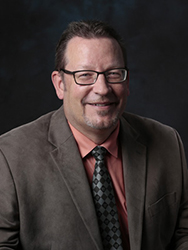Peter Johnson, a professor of environmental and occupational health sciences in the University of Washington School of Public Health, was invited to participate in the Transportation, Warehousing and Utilities Sector Council, which is part of the National Occupational Research Agenda (NORA).

NORA is a collaborative program facilitated by the National Institute for Occupational Safety and Health to identify issues critical to safe workplace practices. NORA has 10 councils made up of representatives from academia, government agencies, labor unions, and trade associations, among others. These councils guide research and research-to-practice for the nation.
Millions of U.S. workers are employed in the transportation, warehousing and utilities sector, which has high rates of fatalities, injuries, and illnesses.
The second-decade agenda, 2006-2016, is coming to a close, and councils, including the Transportation, Warehousing, and Utilities Sector Council, will work for the next decade to set national priorities for research and help facilitate collaborations and partnerships that can improve occupational safety and health.
Johnson is nationally and internationally recognized for his studies on vehicle operator exposures to whole body vibration and ways to reduce these exposures in the semi-truck, bus and mining industries. He is a member of the American National Standards Institute’s (ANSI) Whole Body Vibration Committee and an American Delegate on the International Standards Organization (ISO) Whole Body Vibration Committee.